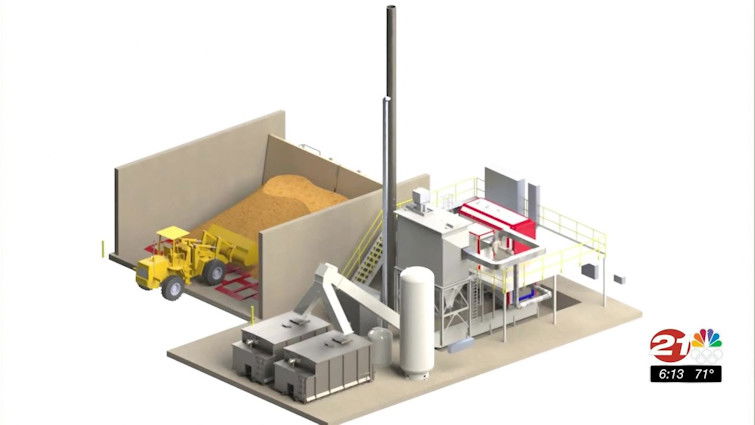Mt. Bachelor, Deschutes County receive $1 million state DOE grant for biomass project at resort

SALEM, Ore. (KTVZ) – The Oregon Department of Energy said this week it has selected 21 recipients for a total of $12 million in Community Renewable Energy Grant Program funds, including $1 million to Mt. Bachelor and Deschutes County for a planned biomass project at the ski resort.
The program supports planning and construction of renewable energy or energy resilience projects for Tribes, public bodies and consumer-owned utilities.
“We are grateful the Oregon Department of Energy has selected Deschutes County and Mt. Bachelor to receive a $1 million Community Renewable Energy Grant to support developing a sustainable biomass facility,” said John McLeod, Mt. Bachelor president and general manager.
“We have been working in collaboration with our community and agency partners to enhance our stewardship of the land for some time now," McLeod said in a statement on the project, partnering with Wisewood Energy.
"This grant, together with similar grants from federal and county agencies, allows us to move forward with a significant project that reduces our greenhouse gas emissions, generates clean energy, creates local employment, and reduces the threat of wildfires through forest fuel reduction, a great solution for the mutual challenges of our time.”
Mt. Bachelor and parent company Powdr Corp. said they will be issuing a more detailed news release updating the project next week.
Appearing before Deschutes County commissioners in June before a grant application deadline, McLeod said they also had received a $1.5 million Forest Service grant from a wood energy program, the maximum amount but less than the $3.8 million sought. He said the ODE grant must be applied for by a public entity.
ODOE received 68 applications that would support about $27 million in projects for this first round of funding, and awards were chosen on a competitive basis with the help of a grant application evaluation committee. Committee members considered project feasibility and strength, equity considerations, cost savings, economic development, and other features before selecting the 21 awarded projects.
The Confederated Tribes of Coos, Lower Umpqua and Siuslaw Indians will receive $1 million to support construction of two microgrid systems that pair renewable solar and battery storage to provide energy and resilience benefits to Tribal buildings.
Wallowa County will use $100,000 to develop a plan for “resilience hubs” in the cities of Joseph, Wallowa, and Enterprise – each hub will pair renewable energy generation with battery storage and electric vehicle charging.
The Jackson County School District will use nearly $978,000 in grant funds to construct a 107.8-kilowatt solar system with battery storage at a local elementary school. The school is designated as a critical facility for emergency operations in the event of a natural disaster or other emergency; the solar plus storage installation will ensure the building retains critical backup power.
Eighteen other funded projects will also support renewable energy or resilience planning and construction projects across the state.
“The Oregon Department of Energy is proud to support projects that will add renewable energy and strengthen resilience in Oregon communities,” said ODOE Director Janine Benner. “We were pleased to receive so much interest in the program and look forward to future rounds of funding to support even more projects for Oregon Tribes, city and county governments, educational organizations, consumer-owned utilities, and other public bodies.”
ODOE will finalize performance agreements with the awardees, which outline their responsibilities for receiving the funds. After finalizing the agreements, the agency may release up to 30 percent of the grants, with the remaining funds released upon project completion and verification.
The Community Renewable Energy Grant Program was created by the Oregon Legislature in 2021 to support projects outside Portland city limits, with a total budget of $50 million. ODOE will make additional rounds of funding available through 2024. See the full list of awardees online.